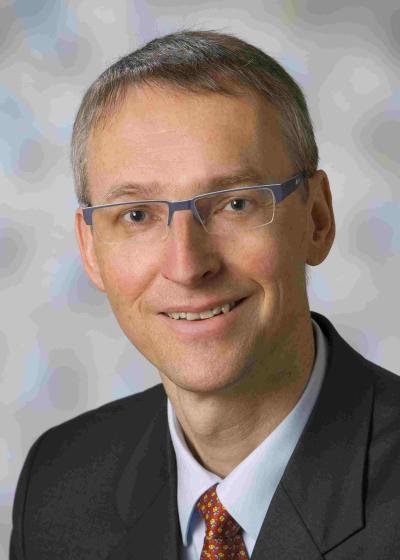Professor Karl Leo from the Institute of Applied Photophysics at the Dresden University of Technology (Dreseden, Germany) visits Georgia Tech and presents a lecture as part of the Georgia Tech-COPE Distinguished Lecture Series.
"Recent Progress in Organic Solar Cells: From a Lab Curiosity to a Serious Photovoltaic Technology"
Carbon-based organic semiconductors have many potential advantages like easy large-area preparation on flexible substrates, large variety of materials, and low cost. Although known for a century, organics have achieved little impact until OLED displays entered the market about a decade ago, demonstrating that organic semiconductors are ready for significant commercial markets.
In contrast to light-emitting devices, organic solar cells have so far achieved little commercial impact due to low efficiency and lifetime. However, organic solar cells have recently achieved significant progress and have crossed the 10% efficiency mark. For a broad application, further significant improvements are needed.
This talk overviews the key features of solid-state organic solar cells and recent developments in the field. One central research area is the design of the bulk heterojunction active layer, requiring a nanoscale phase separation and optimized morphology to achieve efficient operation. A key challenge of the field is to find design rules which relate the molecular structure of absorber materials to layer morphology and cell properties. The difficulty is that small changes of the molecular structure, leaving the electronic properties of the individual molecule nearly unchanged, can lead to large changes in the crystal packing and molecular orientation, causing significant differences in the electronic properties in the active layer. Furthermore, I will discuss highly efficient tandem structures with optimized electrical and optical properties. Very efficient recombination contacts can be realized by n- and p-type doped transport layers. Structures based on these approaches have reached efficiencies of 12% and have the potential to reach approximately 20%. Furthermore, these high-efficiency cells also show encouraging lifetimes.
About Karl Leo
Karl Leo obtained the Diplomphysiker degree from the University of Freiburg in 1985, working with Adolf Goetzberger at the Fraunhofer-Institut für Solare Energiesysteme. In 1988, he obtained the PhD degree from the University of Stuttgart for a PhD thesis performed at the Max-Planck-Institut für Festkörperforschung in Stuttgart under supervision of Hans Queisser. From 1989 to 1991, he was postdoc at AT&T Bell Laboratories in Holmdel, NJ, U.S.A. From 1991 to 1993, he was with the Rheinisch-Westfälische Technische Hochschule (RWTH) in Aachen, Germany. Since 1993, he is full professor of optoelectronics at the Technische Universität Dresden, until 2013, he has been also working at the Fraunhofer-Institution for Organics, Materials and Electronic Devices COMEDD. His main interests are novel semiconductor systems like semiconducting organic thin films; with special emphasis to understand basics device principles and the optical response. His work was recognized by the following awards: Otto-Hahn-Medaille (1989), Bennigsen-Förder-Preis (1991), Leibniz-Award (2002), award of the Berlin-Brandenburg Academy (2002), Manfred-von-Ardenne-Preis (2006), and Zukunftspreis of the German president (2011). He is cofounder of several companies, including Novaled AG and Heliatek GmbH.


